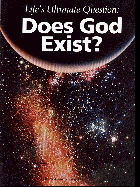|
| HOME |
ARTISTS
BLAKE / CEZANNE LEONARDO / DELACROIX DURER / INGRES MICHELANGELO / RENOIR REMBRANDT / RUBENS
MUSICIANS
BACH / BEETHOVEN MOZART / HANDEL / HAYDN LISZT / MAHLER / PUCCINI RACHMANINOFF/SIBELIUS VIVALDI
PHILOSOPHERS
BACON / BARTH / BERGSON DESCARTES / FICHTE HEGEL / HUME / KANT KIERKEGAARD / LEIBNIZ MARITAIN / MILL / PASCAL ROUSSEAU / WEIL WITTGENSTEIN
SCIENTISTS
COPERNICUS / BRAHE EINSTEIN / FARADAY GALILEO / KEPLER NEWTON / PASTEUR / NOBELISTS / OTHER SCIENTISTS
WRITERS
BAUDELAIRE / BRONTE BROWNING / CHECKOV CHAUCER / DANTE DICKINSON / DONNE DOSTOEVSKY / ELIOT FRANKLIN / GOETHE / KAFKA / LOWELL / PUSHKIN / SHAKESPEARE / TOLSTOY
|
HEGEL |
|
|
|
"Absolute knowledge... must not
remain in its immediacy as an inner feeling or as a vague faith in an indefinite abstract
being-in general, but must proceed to comprehend the Absolute in the mythical term
"God." To know God is not above comprehension, but is above reason which
is the knowledge of things finite and relative." "God is
the absolute spirit: In its non-mythical truth, it is the pure dialectical essence of all
Being which objectifies itself in its own otherness, by means of which it returns
eternally to itself; it maintains its identity in and through its non-absolute and finite
manifestations." "God is holy is that absolute whole
which has nothing alien outside of itself; which has no "temptation." He is
absolute power insofar as He actualizes its concrete wholeness in all
individuations." "Sin is alienation from God . The human individual abuses his freedom in declaring his independence from the whole and in striving and clinging to his finite exclusiveness as if he were absolute in and for himself. But this very freedom to sin, is and remains nevertheless a divine gift. Even in evil, the divine and human nature are not totally alienated. This truth assumes man of divine grace. He may grasp it whereby the reconciliation of God with the world comes to pass and the alienation of man from God is canceled. To "serve God" means that the individual strives to effect this unity with God, not only by concentrating his thoughts and feelings on him in order to receive the assurance of being affirmed in the divine will, but also by proving in its actual life with other individuals that his will and intention is in conformity with the divine will." (Hegel, 278) "Forgiveness of sin is the core
of man's relationship to God: I identify myself with the divine love and accept myself in
this knowledge that God is love... The love of God for man and the love of man for God is
the eternal life in which one's temporal nothingness is both annihilated and
affirmed." "The
Absolute is the One which distinguishes its many contrary spheres within itself; manifests
itself in that which is not and which eternally restores its fullness and unity in and
through and out of its appearing and individuated processes." "The Absolute is not only the essential
ground of world- spheres such as nature and history; it is also the ground of each
individual in his personal uniqueness." "The metaphysical lie and radical evil is this; A finite will pretends to play God. This existential untruth does not touch or remove the ontological truth that the mortal individual is dependent upon , canceled by, and preserved and justified in the eternal Being. Sin, which is negativity and destroys itself, is as nothing in the Absolute; also the Absolute affirms itself in it. It is the "forgiveness of sin." In repentance the infinite sorrow about the negativity of the self is the return to the unbroken wholeness and holiness of the Absolute; in the true repentance, the concrete unity of the universal and the individual exist for itself. In the mythical Christian language : The "son takes the sin of the world upon himself;" the sin is undone in his absolute sacrifice." (Hegel, 282-283) "For God...is that Being in whom
Spirit and Nature are united, in whom intelligence at the same time also has being and
shape." "Thus God
alone is truth." "God is subjectivity, activity, infinite
actuosity." "Nature is the representation of the idea, one may, and indeed ought, to admire in it the wisdom of God." (Hegel, 17) _________________
|
|
|

